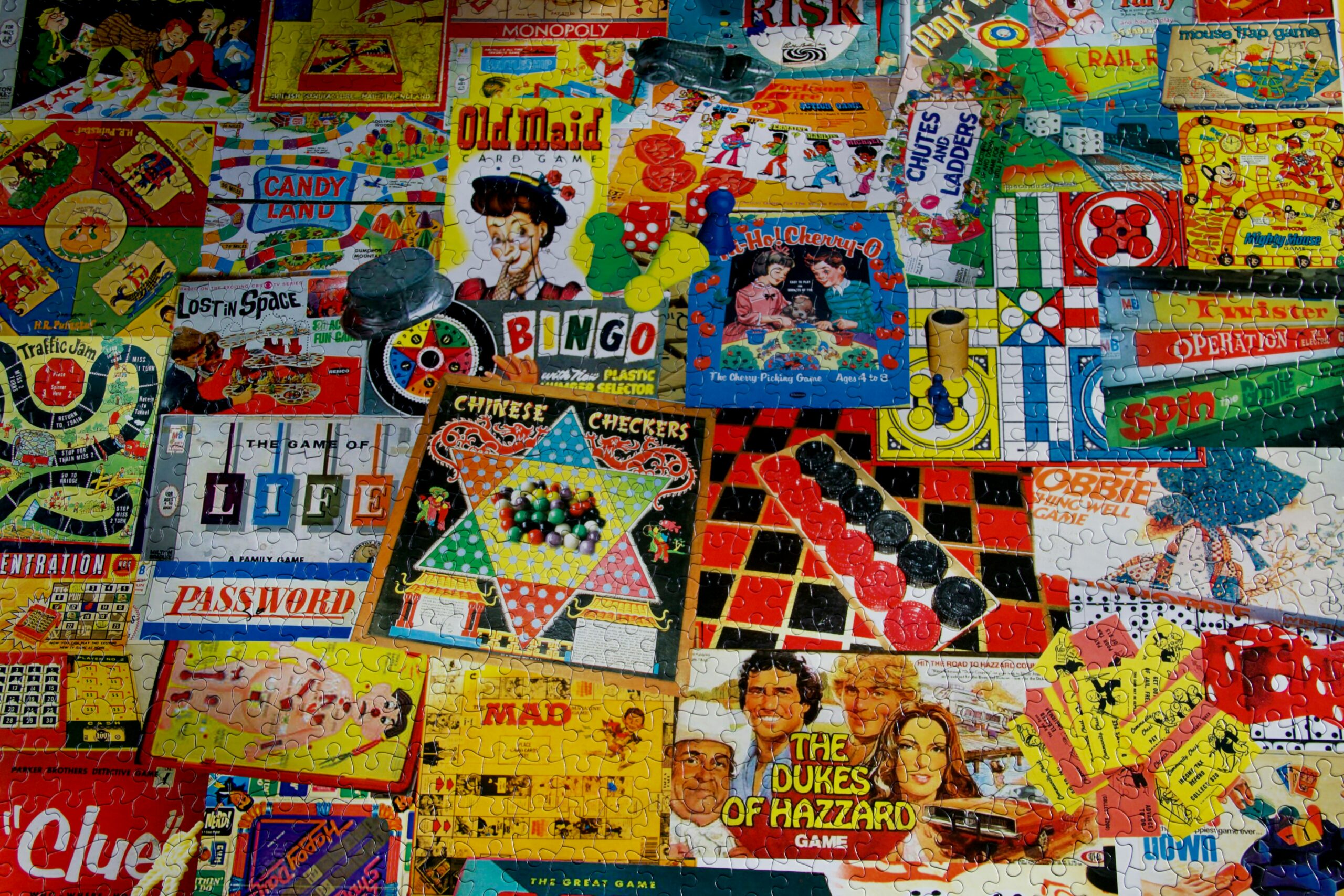
unsplash
In an era dominated by digital entertainment, there’s a nostalgic resurgence taking place in living rooms across the country: the return of classic board games. As families seek ways to disconnect from screens and reconnect with each other, game nights are making a triumphant comeback.
This trend isn’t just about fun; it’s about fostering communication, teaching strategic thinking, and creating lasting memories. Let’s explore 12 throwback games that promise to make your family game night an unforgettable experience.
1. Monopoly
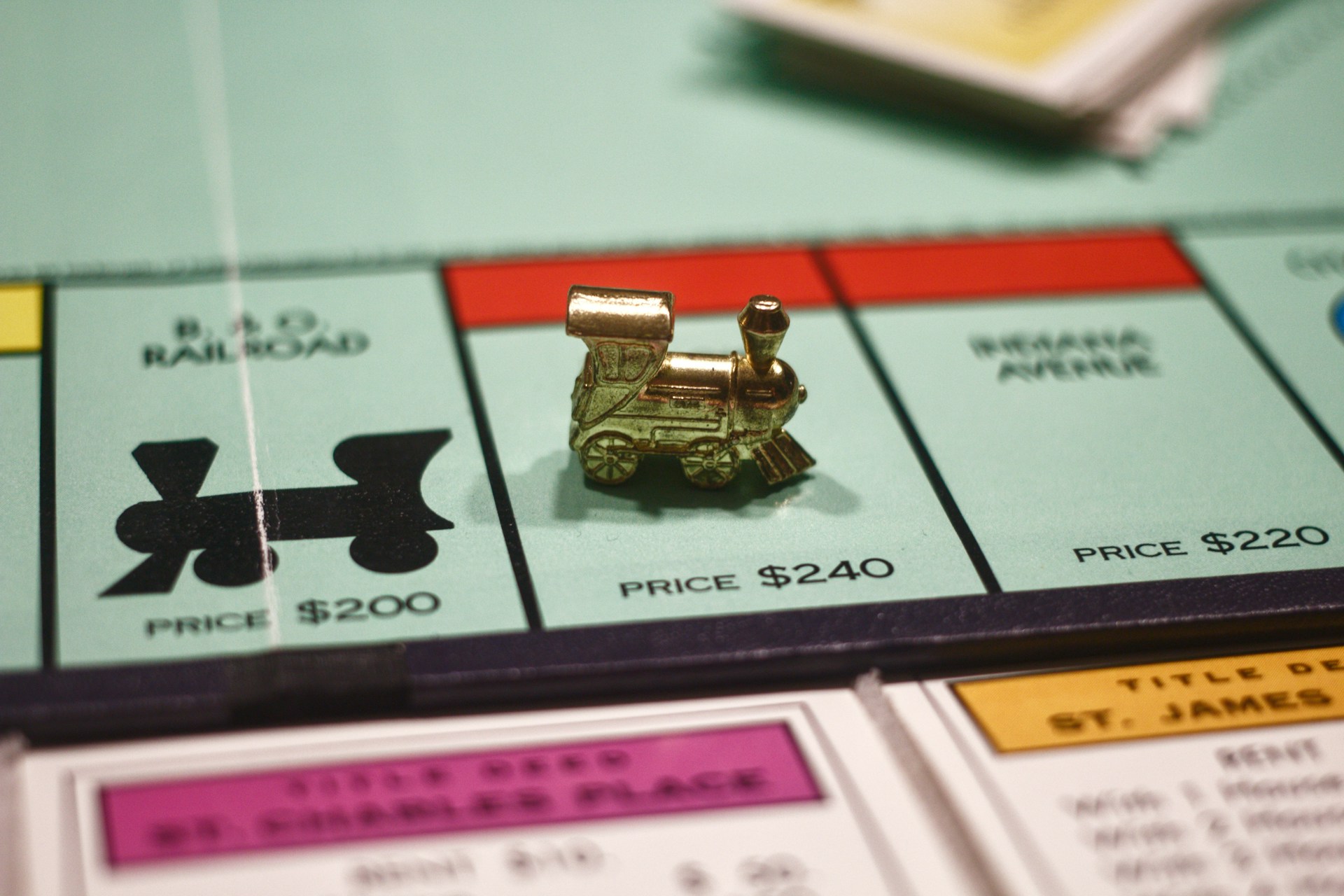
unsplash
No list of classic games is complete without Monopoly. First published during the Great Depression, this real estate trading game has taught generations about negotiation and financial management. With its iconic tokens like the top hat and battleship, Monopoly offers a blend of luck and strategy that keeps players engaged for hours. In today’s gig economy, where entrepreneurship is celebrated, Monopoly’s lessons in property investment and cash flow are surprisingly relevant.
2. Scrabble
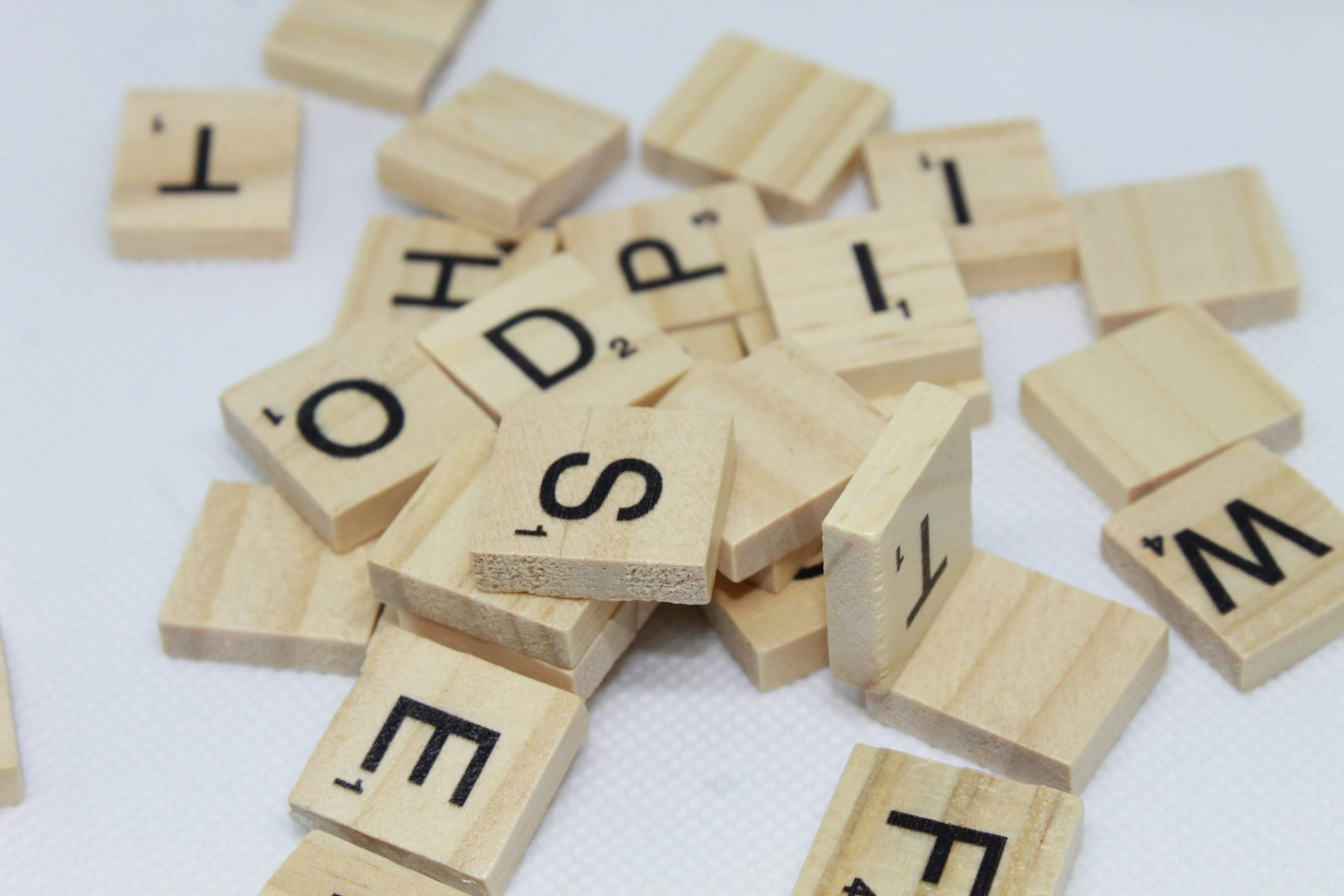
unsplash
In an age of text abbreviations and emojis, Scrabble stands as a bastion of vocabulary. Invented by an architect during the 1930s, this word game challenges players to construct words on a grid for points. It’s not just entertaining; research shows it can improve spelling skills and expand vocabulary. Scrabble is particularly great for intergenerational play, grandparents can share words from their era, while kids introduce contemporary slang, bridging linguistic gaps.
3. Clue
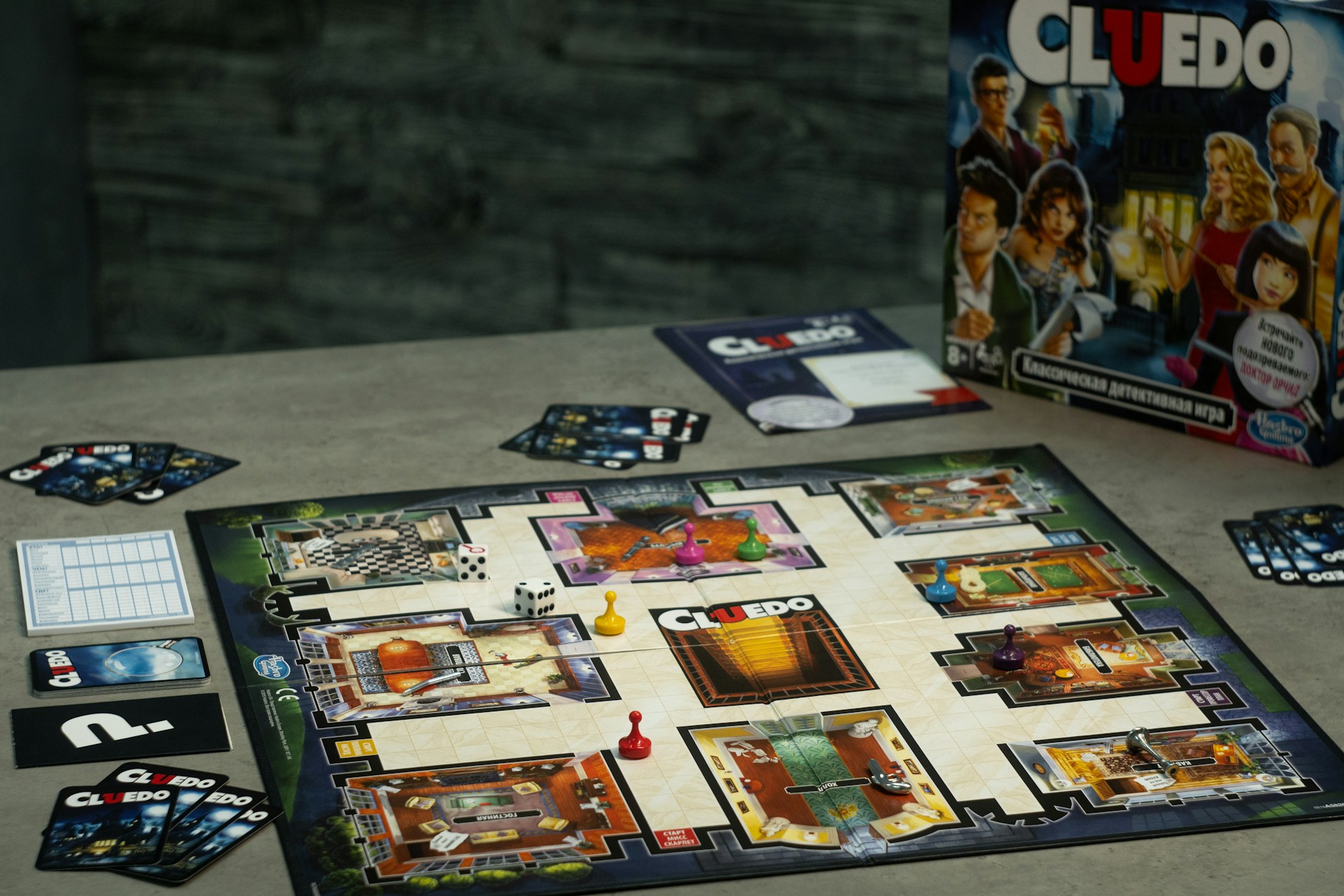
unsplash
Mystery lovers, rejoice! Clue, known as Cluedo outside North America, turns players into detectives solving a mansion murder. With its cast of colorful suspects like Miss Scarlet and Colonel Mustard, Clue blends deduction with a touch of theatrics. In today’s true-crime-obsessed culture, where podcasts and documentaries reign, Clue taps into our collective fascination with solving mysteries. It’s a game that encourages analytical thinking and attention to detail, skills valuable in any era.
4. Risk
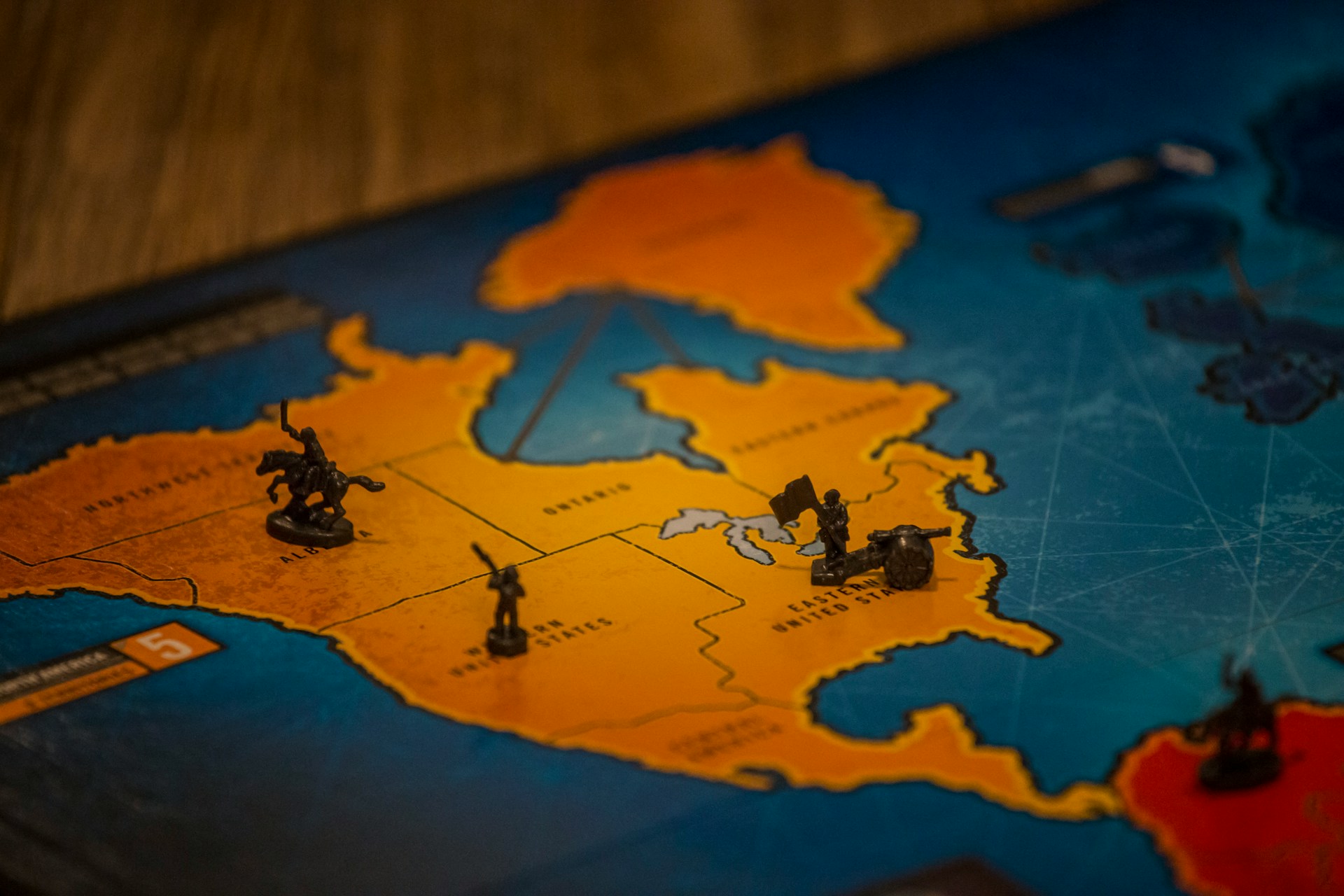
unsplash
Originally designed by a French filmmaker, Risk is a game of global domination that resonates in our interconnected world. Players command armies, form alliances and strategize to conquer territories. More than just a game, Risk offers lessons in diplomacy, resource management, and long-term planning. In an age where geopolitics make daily headlines, Risk provides a tangible way for families to discuss and understand international relations.
5. Operation

unsplash
Before video games had us performing virtual surgeries, there was Operation. This quirky game tasks players with removing plastic ailments from “Cavity Sam” without touching the sides, which triggers a buzzer. It’s a test of fine motor skills and steady hands, making it particularly engaging for kids. In a time when medical dramas dominate TV and healthcare is a hot topic, Operation offers a playful introduction to anatomy and medical procedures.
6. Sorry!
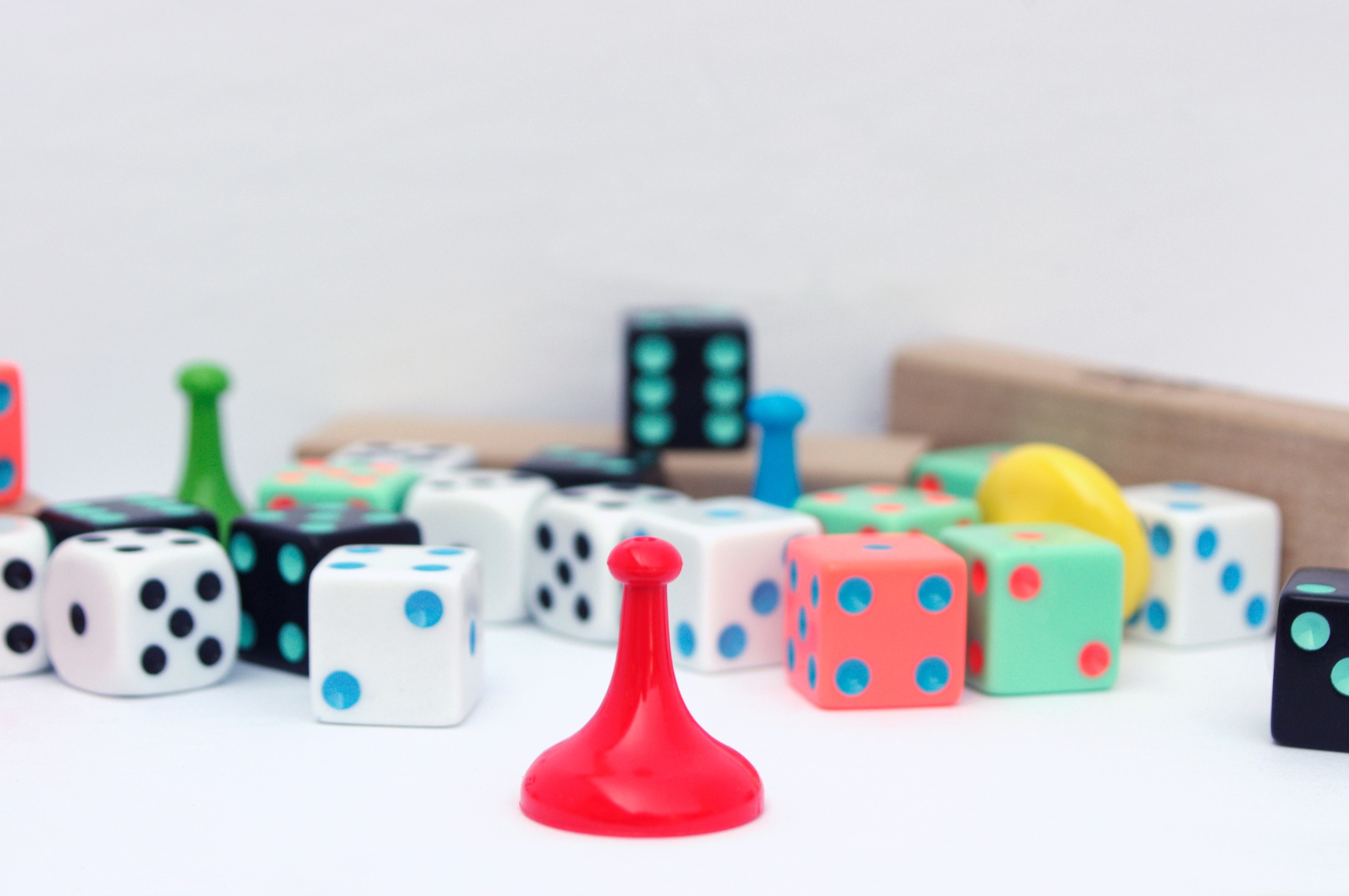
123rf
Originally a British game from the 1930s, Sorry!’s American version brought polite aggression into living rooms. Players navigate their pawns around the board, aiming to get all four “home” first. The twist? You can send opponents’ pieces back to “start” by landing on them, saying “Sorry!”
It’s a game of opportunism and calculated risks, deciding when to advance your pieces and when to hinder others. In our hyper-competitive age, Sorry! teaches the value of strategic setbacks and gracious competition, skills crucial in many professional environments.
7. The Game of Life
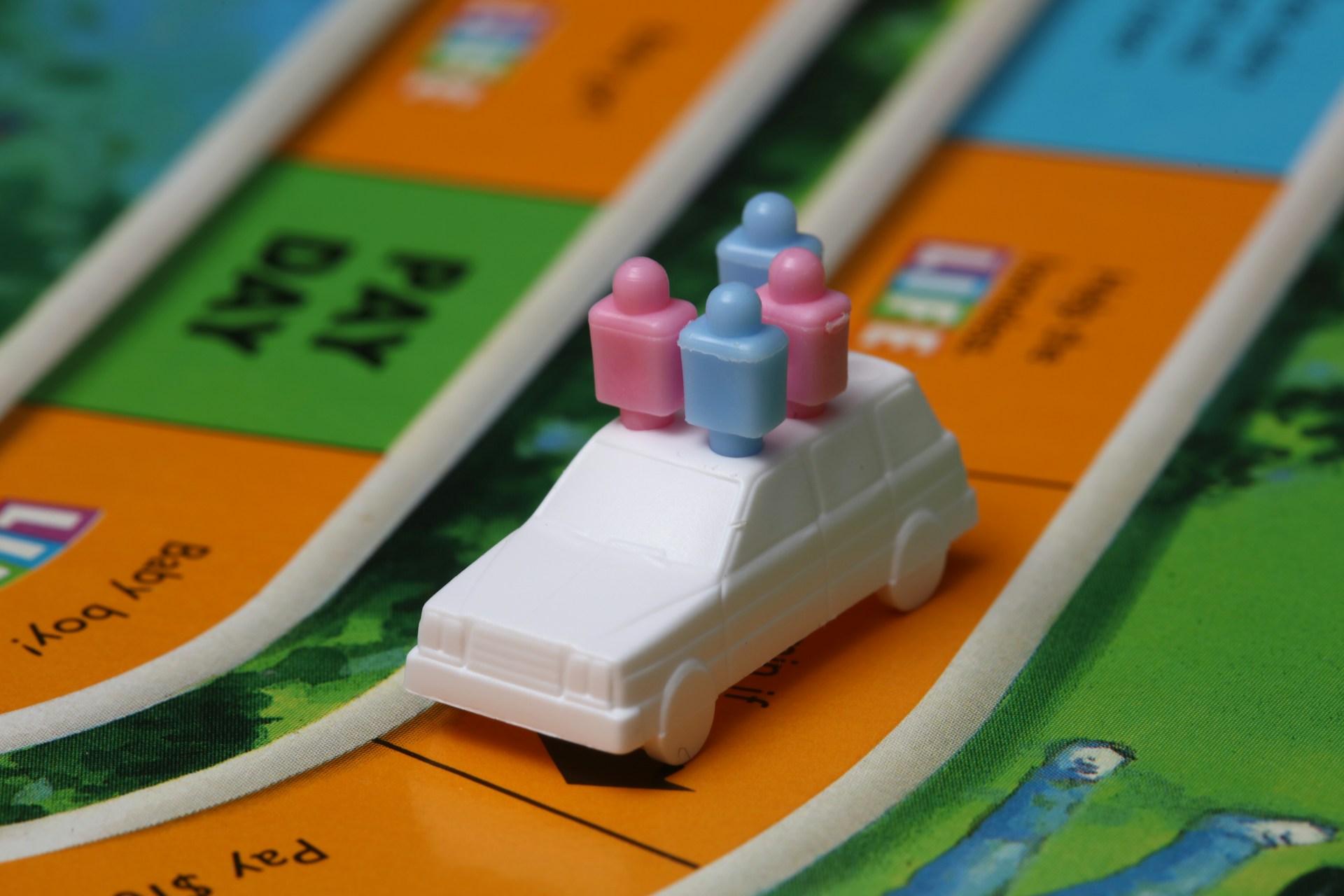
unsplash
First created in 1860 and significantly redesigned in 1960, The Game of Life simulates a person’s journey from college through retirement. Players make life decisions (career, marriage, and children) with financial consequences. In today’s world, where traditional life paths are being redefined, this game sparks meaningful family discussions about choices and values. It’s a fantastic tool for parents to share wisdom about life’s twists and turns.
8. Katan
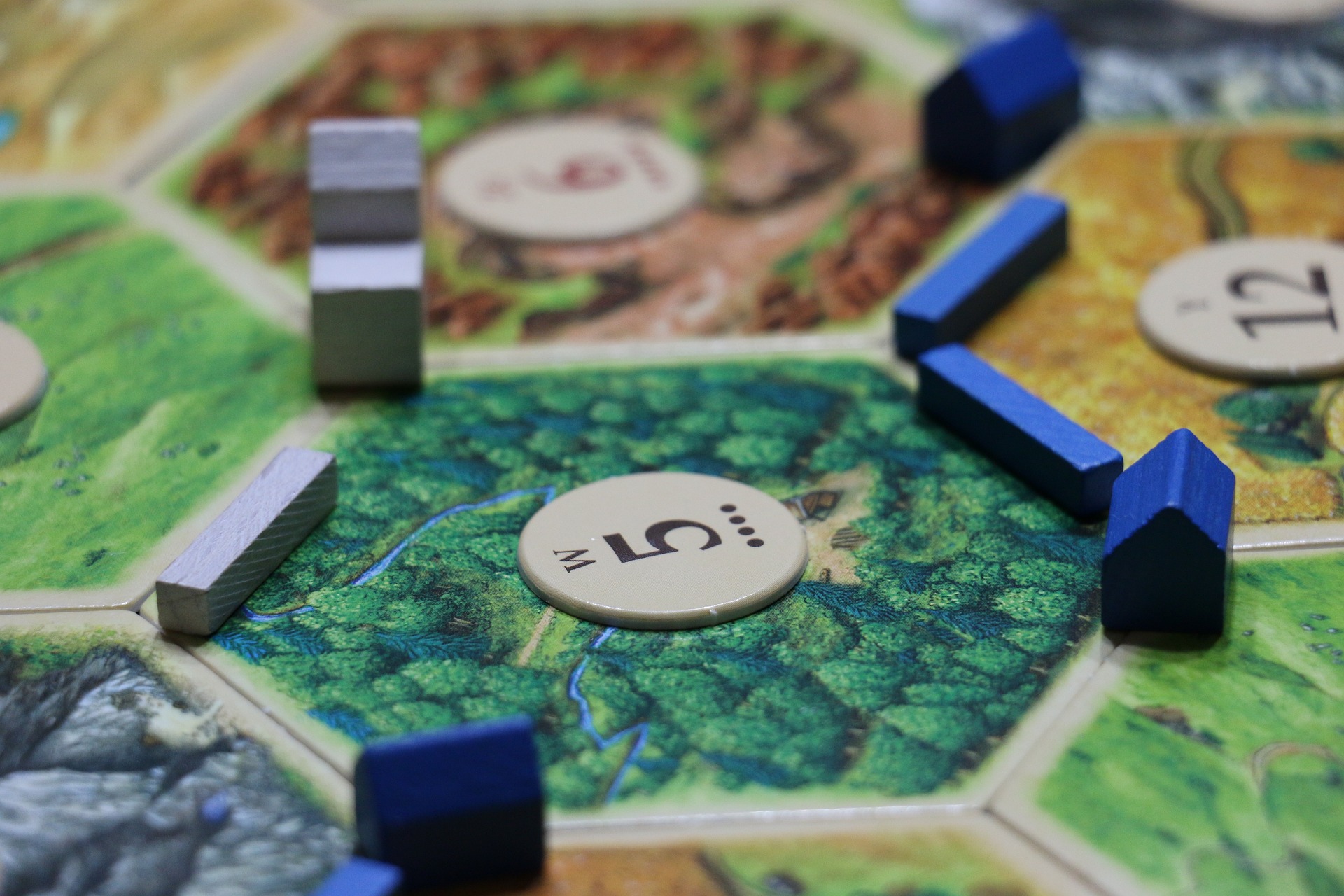
pixabay
In an age where “social distancing” entered our lexicon, Catan offers a refreshing, communal closeness. Created by a German dental technician, This board game, which turns players into resourceful settlers on a hexagonal island, was revolutionary in the 1990s for its collaborative yet competitive gameplay.
Today, in a world where much interaction is virtual, Catan brings back the joy of face-to-face strategic negotiations. It’s not just fun; it promotes negotiation skills, resource management, and long-term planning, a perfect counterpoint to instant gratification in the digital age.
9. Chess
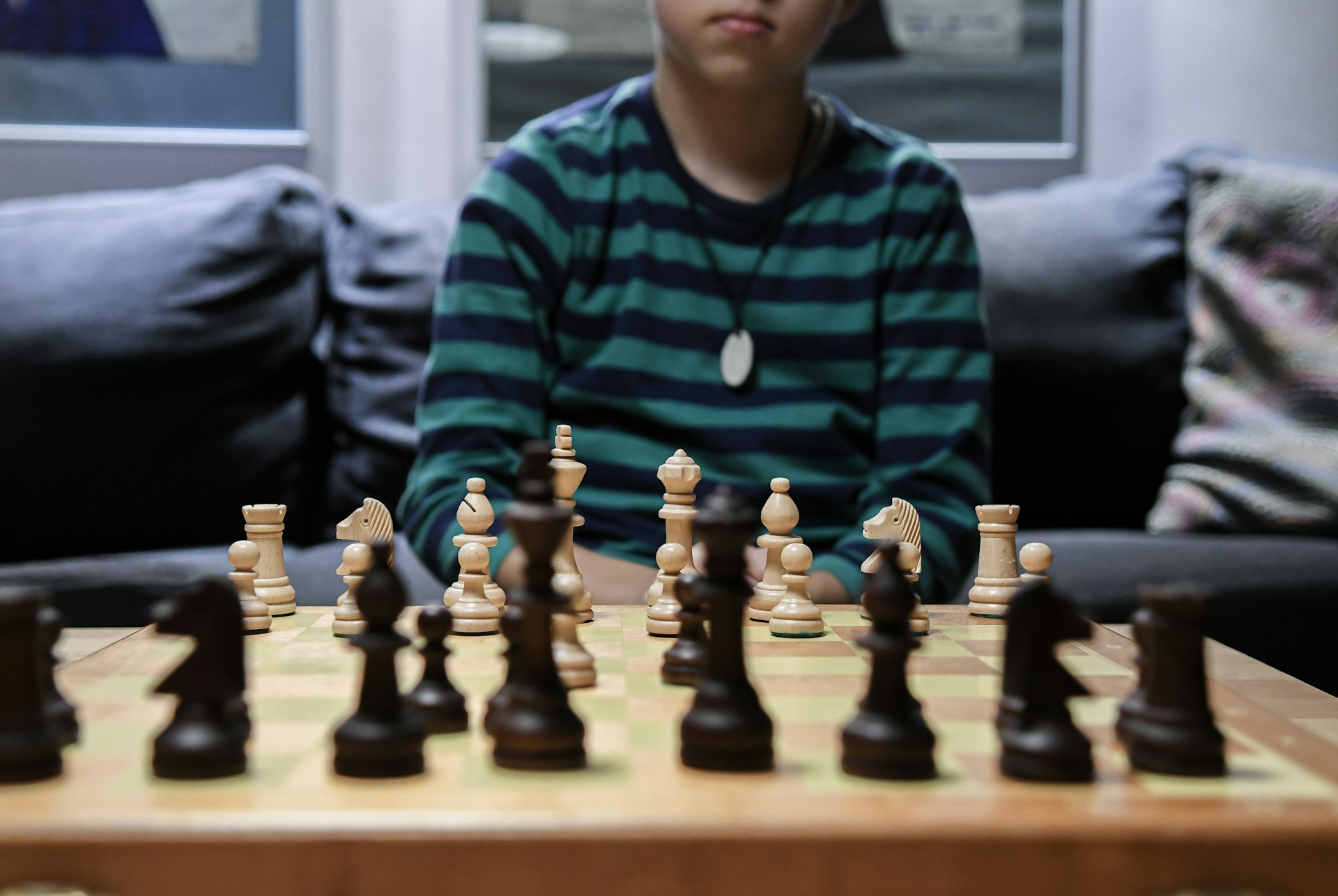
unsplash
Chess, with roots stretching back over a thousand years, is enjoying a renaissance thanks to shows like “The Queen’s Gambit.” This game of kings and queens transcends generations, teaching foresight, patience, and the art of gracefully conceding defeat. In our fast-paced digital age, where instant gratification is the norm, chess encourages slow, deliberate thinking. Its resurgence reflects a growing desire for activities that cultivate mindfulness and strategic depth.
10. Trivial Pursuit

wikimedia
Before there was Google, there was Trivial Pursuit. Launched in 1979, this game tests knowledge across six categories, from history to pop culture. It’s an evening-long tour through human achievement and folly. In our era of information overload and “fake news,” Trivial Pursuit encourages fact-checking and broadens general knowledge. It’s particularly fun when spanning generations. Where else can a teen’s movie trivia trump a parent’s historical facts?
12. Mahjong
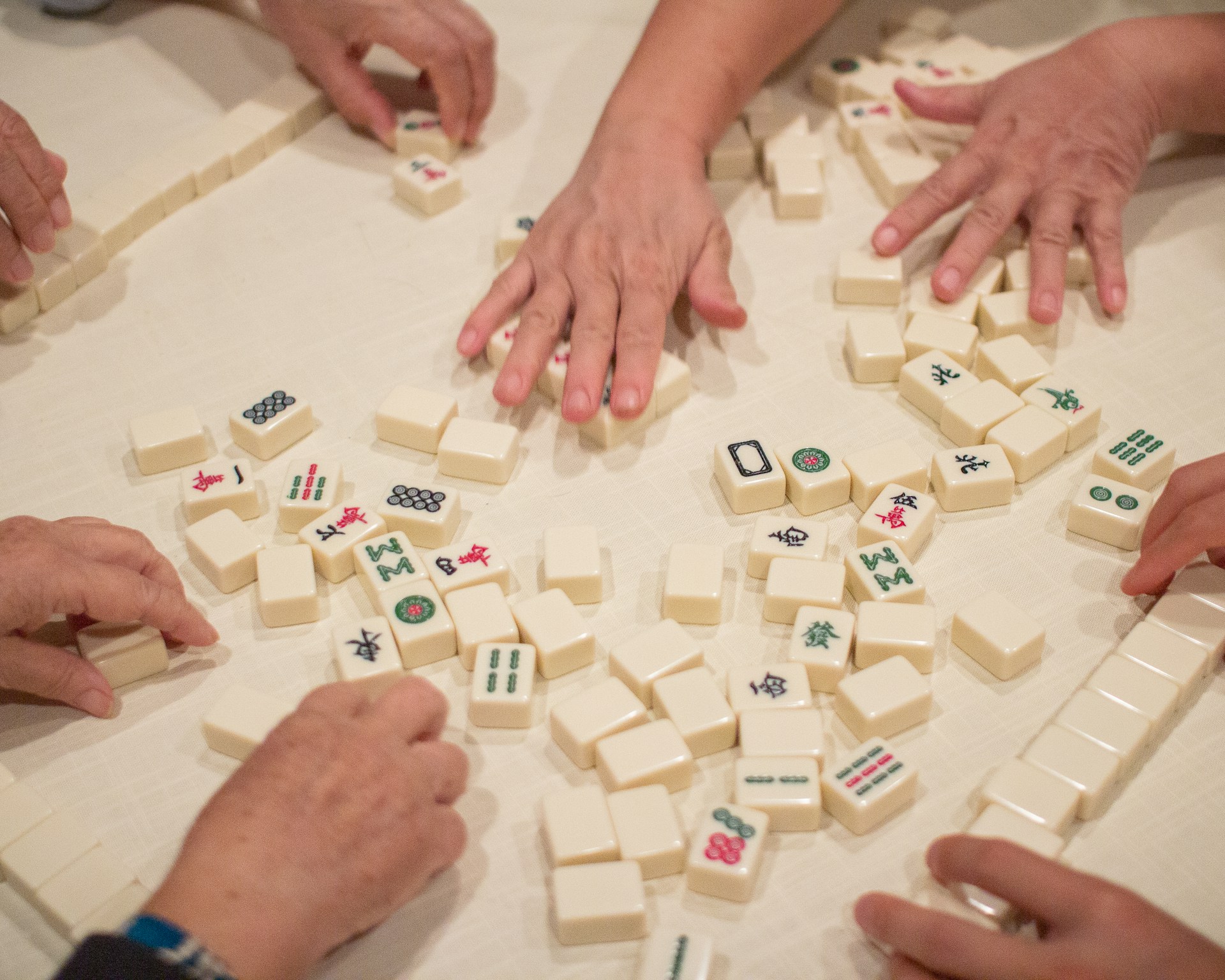
unsplash
While many know it as a digital solitaire game, traditional Mahjong is a rich, social experience. Originating in China and gaining global popularity in the early 1900s, it involves skill, strategy, and a dash of chance. Players match and collect tiles to form sets, much like in poker.
As interest in global cultures grows, Mahjong offers a window into Eastern traditions. Its meditative clicking of tiles and emphasis on observation make it a calming yet mentally stimulating choice for family nights.
Unplug, Play, and Reconnect

123rf
In our hyper-connected digital age, the irony is that many feel disconnected from those closest to them. The resurgence of classic board games is more than nostalgia; it’s a response to this modern dilemma. These 12 throwback games offer something screens can’t, tangible interaction, face-to-face communication, and shared experiences that don’t require Wi-Fi.
We’re living through challenging times, pandemics, political tensions, and technological upheavals. In such periods, the comfort of tradition and the joy of simple pleasures become invaluable. Board games offer both. They remind us that in a world of constant change, some delights remain timeless.
So, this weekend, why not skip the Netflix binge? Dust off that old Scrabble set or introduce your kids to the suspense of Clue. You’re not just playing games; you’re building memories, skills, and family ties that will last long after the pieces are packed away.
Stephen began his career as a Research Assistant at a reputable middle-market private equity firm, where he honed his skills in market research, financial analysis, and identifying investment opportunities. He then transitioned to full-time financial writing focusing on small-cap biotech innovation and digital payment solutions. Today, Stephen is a value-based retail investor and novice baseball statistician.
Leave a Reply